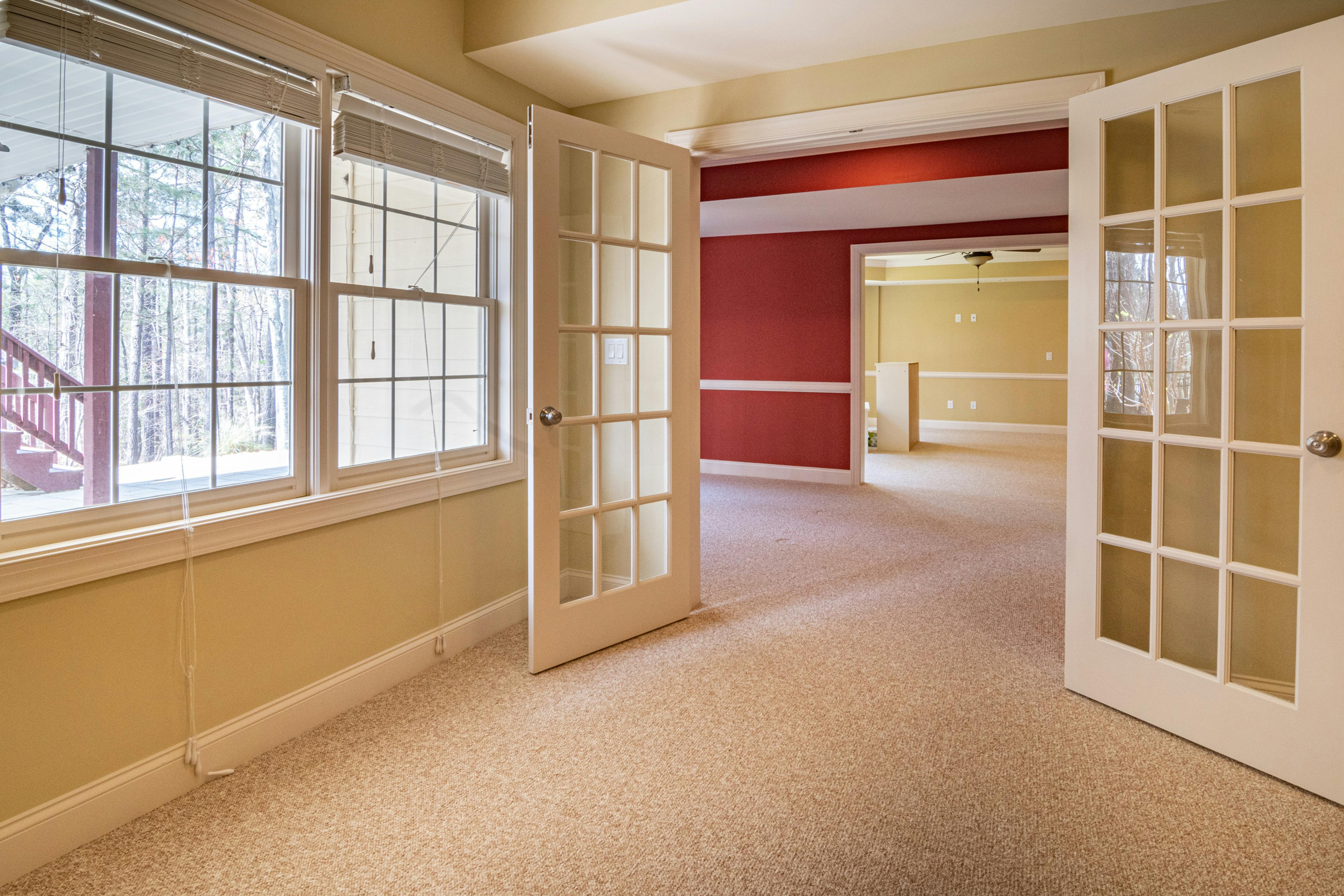In today’s real estate market, the challenge for homeowners who want to sell their home quickly is that they must compete with banks and other mortgage lenders who have repossessed many homes through the foreclosure process. These foreclosed homes are then placed on the open market in a given community and are often offered at eighty percent or less of their appraised value. This is having a significant downward effect on house prices. But there are things you can do if you want to sell your home for cash today.
The Residential Real Estate Price Challenge: Homes in Foreclosure Weigh the Market
The US housing market is currently reeling under a glut of unsold home inventory due to the biggest foreclosure crisis to hit the country since the Great Depression of the 1930s. There are many reasons why the country is is in the midst of a foreclosure crisis, and other articles can provide the background to the recession. Some topics to explore include: adjustable rate mortgages, subprime mortgages that quickly became unaffordable, Alan Greenspan’s Federal Reserve monetary policies, real estate speculation, and more.
This article explains some options available to a home seller to help them sell a home quickly, even in a falling market whose bottom has not yet clearly been reached.
Home Sales Option #1: Selling your home to a real estate investor
Homeowners who need to sell a home quickly due to unaffordable mortgage payments, job loss, transfer or relocation, divorce, inheritance, or any other reason can search for a home buying company online or through their local ‘real real’ . “Real Estate Wanted” from your local newspaper to find a real estate investor who can buy a home for a cash offer in a short period of time. Investors advertise “We Buy Homes” on plastic signs on fences and telephone poles, but many of these signs are put up by investors of dubious provenance.
Do your homework on the Internet if possible: Be sure to research the person or company you are considering doing business with to see if they are reputable. If the investor claims to have professional licenses, check their records online if they are available. In general, the “simpler” the transaction, the better chance you have of dealing with a direct buyer. This means that you must sell the home directly and completely in the traditional formal manner at an escrow or title company of your choice or with the representation of an impartial real estate attorney who does not work exclusively for the investor.
The advantage of selling a home to a real estate investor for a cash purchase is that if you meet certain criteria, you can walk away with cash in hand or a mortgage that will be paid off in a very short period of time. The downside is that investors will want to guarantee that they will make a profit on the resale of your home and that that profit will come from the equity in your home or out of pocket.
Most real estate investors who buy single-family homes and then quickly resell (home flip) and those who use a buy-and-hold strategy look for deep discounts on a home. This figure for an offer typically starts at 70% of current FMV. Of course, most investors would prefer to buy a home at much less than 70% of the current FMV. There are some investors who will pay close to 80% of the current FMV for the properties they buy, but these buyers are sometimes hard to find. (Current FMV also means that a home’s value is determined only after subtracting repair costs, if any.)
Home Sales Option #2: “List Smart” with a Real Estate Agent or Broker
If you’re the type of home seller who wants to get the best price for your house, this section may not give you the kind of price advice you’re looking for. But, if you are looking for a quick sale of your real estate, please read this article carefully and repeatedly.
The key to selling a home can be learned from the above discussion of real estate investor criteria for buying a home in terms of the current FMV discount. In order for your home to ‘jump off the page’ to a retail buyer if you have it listed with an agent or broker, it must be priced significantly below the competition. It’s really that simple. If your neighbor’s identical house is listed for $210,000 and yours is listed for $195,000, whose house will sell first?
Do you really want to be a FISBO and sell your house yourself?
For-sale-by-owner (FSBO) home sales strategies have always been popular in concept, and for people who are sophisticated in terms of contract law, they can save money. But, for people with little experience in buying and selling real estate, using an experienced and licensed real estate professional can be an invaluable help. Statistics published by the National Association of Realtors indicate that the typical FSBO home sold for $187,200 compared to $247,000 for agent-assisted home sales in 2007. Many do-it-yourself home sellers eventually sell or they buy a house with the help of an agent if they have tried it alone for a short or long time.
Create a real estate auction environment
You’ve probably seen the ads for real estate auctions in your area. Want to know the secret to how these auction companies stay in business? It’s psychology of the auction frenzy.
By offering people looking to buy a home at auction the chance to buy a foreclosed home at a very low price, auction companies are appealing to bidders’ greed. Once this emotion of greed and a spirit of competition with other buyers has kicked in, many people will bid on a home much higher than the original asking price. An auction setting can definitely work against a buyer, especially if there are a lot of other bidders involved!
You can use this lesson to your advantage. If you price your home almost ridiculously low, you should expect to start getting offers from potential buyers. Remember, it’s best to have a lot of low bidders, initially, so you can compete against each other and see the price rise to get close to, or sometimes exceed, current fair market value. Also remember that you do not have to accept any offer that you consider too low. Make sure you are aware of the federal, state, and local laws governing real estate law, contract law, and especially the nondiscrimination provisions that apply.
Home Sales Challenge #1: How to determine the fair market value of my real estate
In today’s real estate market, determining a home’s current FMV is a very difficult thing to do. Most economists agree that home prices will continue to fall nationally for some time and that a true stabilization of US home prices may take a year or two or more.
A quick and dirty way to calculate a home’s approximate FMV is to average the price that zillow.com and cyberhomes.com (and other online home appraisal sites) give for the home, and then multiply that number by 85%. This should get you to a price that would make a retail home buyer or first time home buyer jump on your home over the competition.
It is very, very important for home sellers to understand the competitive landscape. Without a home priced at a deep discount to “competitively” priced homes on the market, a seller has little chance of getting the best price or even any offer to buy.
The only working definition of current fair market value worth remembering is what a willing retail buyer will actually end up paying for their home in a 2-4 month period. These buyers, especially first-time homebuyers and people with less than perfect credit, also face their own challenges in qualifying for a mortgage loan due to the stricter underwriting standards imposed since the development of the credit crunch in the USA.
Home Sales Challenge #2: Low, No, or Negative Home Equity
This is a difficult situation and is responsible for many of the foreclosures that occur in today’s real estate market. For people who bought homes since 2003 (or even earlier), chances are their home won’t have much equity unless a substantial down payment has been made on the home. For many of these homeowners who want to sell a home fast, they are faced with the less than ideal situation of paying money at closing to sell their home to cover the amount they owe their mortgage lender in excess of the sale price and the costs of closing.
When this cannot happen due to limited financial resources on the seller’s part, the lender typically finishes repossessing the foreclosed home and becomes part of the aforementioned real estate inventory (REO) acting as a drag on value. from the house .
Conclusion
Whatever your situation, you can learn more about all things real estate simply by doing research here at Ezine Articles, on Google, or on your favorite search engines or websites. Happy learning!



